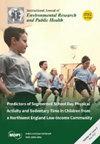澳大利亚原住民初级医疗保健数据规范与潜在可预防住院治疗的比较
3区 综合性期刊
Q1 Medicine
International Journal of Environmental Research and Public Health
Pub Date : 2024-09-09
DOI:10.3390/ijerph21091192
引用次数: 0
摘要
潜在可预防的住院治疗(PPH)是衡量非医院护理有效性的一个广泛使用的指标。根据《国际疾病分类》(ICD)编码,潜在可预防住院包括一系列通过适当护理本可预防的健康状况。最新版的《原住民预防性健康评估国家指南》记录了初级医疗服务提供者关注的健康状况,其中许多并不包括在 PPH 中。鉴于《国家指南》是专门针对原住民制定的,本研究有两个目的。第一个目的是正式提出这样一个问题:在原住民初级保健信息方面,与《国家指南》在诊断上保持一致的住院情况总结性测量方法是否具有替代或补充《国家指南》的价值。第二个目的是为这种测量方法开发并提出一个 ICD-10 数据规范原型(称为原住民初级卫生保健(FNPHC)数据规范),并检查 FNPHC 和 PPH 的年龄标准化住院率之间的相关性和/或差异。我们使用这两种分类方法对2016-17年至2019-20年的年龄标准化住院率进行了检查,以评估住院情况的总结性测量方法对初级保健的有用性和相关性。主要诊断的FNPHC率是PPH率的1.5至2.5倍,附加诊断的FNPHC率大约是PPH率的6至12倍。在比较所有观察指标的比率时,FNPHC 与 PPH 有很强的相关性:根据自定义规范,PPH 比率较高的辖区往往住院率也较高。研究结果支持将其作为原住民初级医疗服务提供者的简要衡量标准。考虑到澳大利亚旨在缩小差距的政策环境,初级健康测量必须利用原住民数据主权和治理的概念和应用。原住民初级健康数据规范的有效性和文化适宜性有待进一步研究。本文章由计算机程序翻译,如有差异,请以英文原文为准。
A Comparison of an Australian First Nations Primary Healthcare Data Specification with Potentially Preventable Hospitalisations
Potentially Preventable Hospitalisations (PPH) is a widely used indicator of the effectiveness of non-hospital care. Specified using the International Classification of Diseases (ICD) coding, PPH comprises a suite of health conditions that could have potentially been prevented with appropriate care. The most recent edition of the National Guide to a Preventative Health Assessment for First Nations People documents the health conditions of interest to providers of primary care, many of which are not represented in PPH. Given the National Guide has been developed specifically with First Nations in mind, the aim of this research is twofold. The first aim is to formally posit the question of whether a summative measure of hospitalisations aligned diagnostically to the National Guide has value either as an alternative or complement to PPH in the context of First Nations primary health information. The second aim is to develop and present a prototype ICD-10 data specification for such a measure, referred to as the First Nations primary healthcare (FNPHC) data specification, and examine the age-standardised hospitalisation rates for FNPHC and PPH for correlations and/or differences. Age-standardised hospitalisation rates from 2016–17 to 2019–20 using both classifications were examined to assess the usefulness and relevance of summative measures of hospitalisations for informing primary care. Rates of FNPHC for principal diagnoses were between 1.5 and 2.5 times higher than those of PPH and approximately between 6 and 12 times higher for additional diagnoses. There was a strong correlation with PPH when rates were compared across all observations: jurisdictions with higher rates of PPH tended to have higher rates of hospitalisations according to the custom specification. Findings support its application as a summary measure for First Nations primary care providers. Given the policy landscape in Australia that aims to close the gap, it is imperative that measures of primary health take advantage of the concepts and application of First Nations data sovereignty and governance. The validity and cultural appropriateness of the First Nations primary health data specification needs to be further researched.
求助全文
通过发布文献求助,成功后即可免费获取论文全文。
去求助
来源期刊

International Journal of Environmental Research and Public Health
Medicine-Public Health, Environmental and Occupational Health
CiteScore
7.30
自引率
0.00%
发文量
14422
审稿时长
1 months
期刊介绍:
International Journal of Environmental Research and Public Health (IJERPH) (ISSN 1660-4601) is a peer-reviewed scientific journal that publishes original articles, critical reviews, research notes, and short communications in the interdisciplinary area of environmental health sciences and public health. It links several scientific disciplines including biology, biochemistry, biotechnology, cellular and molecular biology, chemistry, computer science, ecology, engineering, epidemiology, genetics, immunology, microbiology, oncology, pathology, pharmacology, and toxicology, in an integrated fashion, to address critical issues related to environmental quality and public health. Therefore, IJERPH focuses on the publication of scientific and technical information on the impacts of natural phenomena and anthropogenic factors on the quality of our environment, the interrelationships between environmental health and the quality of life, as well as the socio-cultural, political, economic, and legal considerations related to environmental stewardship and public health.
The 2018 IJERPH Outstanding Reviewer Award has been launched! This award acknowledge those who have generously dedicated their time to review manuscripts submitted to IJERPH. See full details at http://www.mdpi.com/journal/ijerph/awards.
 求助内容:
求助内容: 应助结果提醒方式:
应助结果提醒方式:


